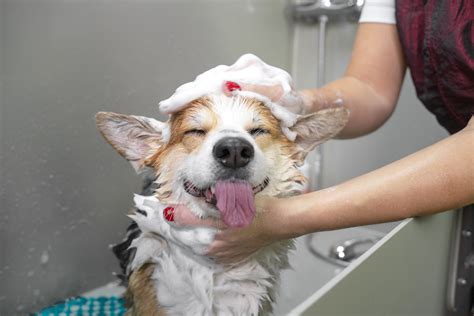VS: The Importance of Pet Care for Human Health

Pets play an integral role in our lives, bringing us joy, companionship, and unconditional love. However, beyond the emotional benefits, they can also significantly impact our physical well-being, including our immune system.
According to the American Kennel Club, over 63.4 million households in the United States own pets, highlighting the significant presence of these furry companions in our society. However, many pet owners may not fully realize the importance of proper pet cleaning and hygiene for maintaining their own health and that of their beloved pets.
Neglecting pet hygiene can lead to the accumulation of dirt, debris, and parasites, which can compromise their immune system, making them more susceptible to infections and diseases. These pathogens can easily spread to humans through direct contact, inhalation, or ingestion, posing a potential health risk.
The Impact of Pet Cleaning and Hygiene on the Immune System
The immune system is a complex network of cells, tissues, and organs that work together to defend the body against foreign invaders such as bacteria, viruses, and parasites. A strong immune system is essential for maintaining overall health and preventing illness.
Pets can harbor various microorganisms, including bacteria, fungi, and parasites, which can affect their immune system and potentially compromise human health. Regular cleaning and hygiene practices can help reduce the presence of these harmful microorganisms, promoting a healthier immune system in both pets and their owners.
Benefits of Proper Pet Cleaning and Hygiene
-
Reduced risk of infections and diseases: Regular cleaning and hygiene routines can help prevent the transmission of zoonotic diseases, which are diseases that can be transmitted between animals and humans. By reducing the exposure to pet-related allergens and pathogens, proper hygiene practices can minimize the risk of respiratory problems, skin infections, and other health issues.
-
Improved pet health and well-being: Maintaining a clean and hygienic environment for your pet can help prevent skin irritation, allergies, and other health problems. Regular brushing and grooming can remove excess hair, dirt, and debris, promoting a healthy coat and skin.
-
Reduced odor and allergies: Pets can be a source of unpleasant odors, which can trigger allergies and respiratory issues in some individuals. Proper cleaning and hygiene practices can help control pet-related odors, reducing the risk of allergic reactions and improving indoor air quality.
-
Increased bonding and companionship: Spending time grooming and cleaning your pet can strengthen the bond between you and your furry friend. These activities provide opportunities for relaxation, interaction, and mutual affection, fostering a deeper connection between pet and owner.
How to Improve Pet Cleaning and Hygiene
-
Regular bathing: Depending on the type of pet and its lifestyle, bathing can help remove dirt, debris, and parasites from their coat and skin. Use pet-specific shampoos and conditioners designed for their skin and coat type.
-
Brushing and grooming: Regular brushing and grooming can remove loose hair, prevent mats and tangles, and distribute natural oils for a healthy coat. It also helps remove dirt and debris and promote blood circulation.
-
Nail trimming: Overgrown nails can cause discomfort, pain, and mobility issues for pets. Regular nail trimming using pet-specific nail clippers helps maintain healthy nail length and prevents nail splitting or breakage.
-
Ear cleaning: Regular ear cleaning helps prevent ear infections and buildup of wax and debris. Use pet-specific ear cleaning solutions and follow the instructions carefully to avoid causing discomfort or damage to the ear canal.
-
Dental care: Dental hygiene is crucial for pets’ overall health. Regular teeth brushing, dental chews, and professional dental checkups can prevent dental disease, gum infections, and bad breath.
-
Parasite control: Pets can be susceptible to parasites such as fleas, ticks, and worms. Regular use of parasite control products, such as flea and tick collars, topical treatments, or oral medications, can prevent infestations and the transmission of vector-borne diseases.
-
Environmental hygiene: Maintaining a clean and hygienic environment for your pet includes regular cleaning of their bedding, toys, food and water bowls, and the areas where they spend most of their time. This helps reduce the buildup of dirt, bacteria, and parasites, promoting a healthier living space for your pet.
Conclusion
Proper pet cleaning and hygiene are essential for maintaining the health and well-being of both pets and their owners. By implementing regular cleaning and hygiene routines, we can reduce the risk of infections and diseases, improve pet health, and strengthen the bond between humans and their furry companions.
As we progress towards 2025, it is imperative to prioritize pet cleaning and hygiene as a fundamental aspect of pet care. By embracing these practices, we can ensure a healthier and more fulfilling life for our beloved pets and ourselves.





















